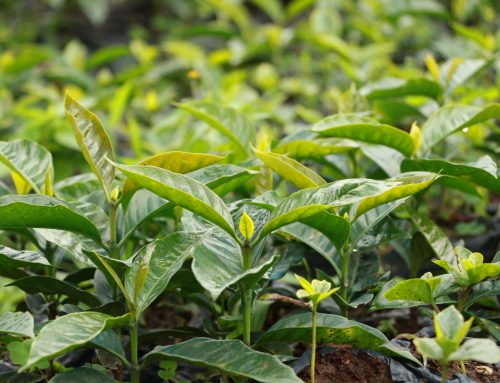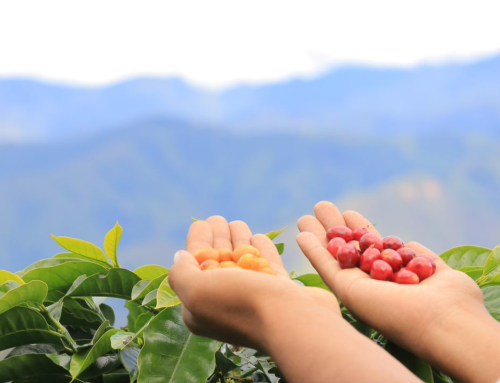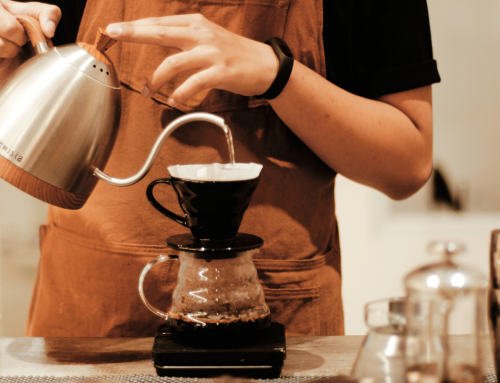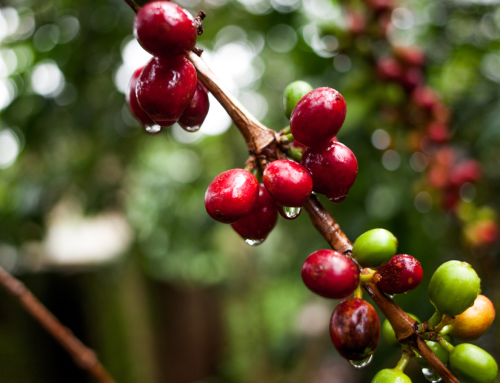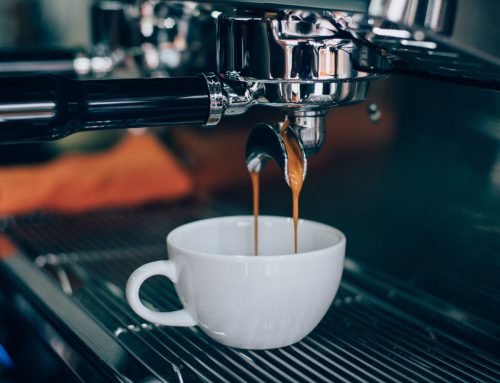“I got in touch with the IWCA chapter here in Guatemala, called Mujeres en Café, and I started talking to Celeste Fumagalli, who was then the president. We started talking, and we arranged a field trip for all the producers to learn about the Volcafe Way.”
Maria Renee Morales, assistant manager at Peter Schoenfeld, GO’s sister company in Guatemala, recently explained over a phone call how La Morena, a microlot for Genuine Origin created almost entirely by women, came together.
 “It was a bit late in the season, but we created a contest where the women sent me samples and I cupped them with Eduardo [Cabrera] and selected the three best lots. And the final winners were Celeste, from her farm in Jutiapa, and Karin Hernandez, from Ciudad Vieja, near Antigua.”
“It was a bit late in the season, but we created a contest where the women sent me samples and I cupped them with Eduardo [Cabrera] and selected the three best lots. And the final winners were Celeste, from her farm in Jutiapa, and Karin Hernandez, from Ciudad Vieja, near Antigua.”
She paused, before going on to the third winner.
“Karin is a real champion in her region. She has helped a lot of women producers in her region to find assistance. She found out about Volcafe Way and Roberto Cardona [head of sustainability for Volcafe Way in Guatemala] went down there, and now they’re organizing workshops with all the ladies from that region. She’s very entrepreneurial and really eager to help. She’ll say, ‘I know the coyotes don’t take them seriously, or pay them lower prices, because they’re women!’”
The third slot went to Jovita Castillo, from Santa Rosa, who is the manager of Joya Grande, a large farm owned by a big company.
“So, it’s a coffee from three different regions, and really three different types of producers,” says Maria Renee. “Celeste is a very focused on quality — she even picked the coffee on the Brix scale, which measures the color of the cherries and tells you if you should pick. Jovita knows a lot about the trading side, and she’s always trying to pass on that knowledge to the farm. And Karin is very focused on the community and passing all the value on to them.”
WHO WANTS TO DEAL WITH WOMEN? WE DO.
In addition to growing it, women were involved in every stage of this coffee.
On Celeste’s farm, sisters Dora Alicia Vasquez and Ingrid Vasquez helped harvest the coffee. Celeste inherited the farm from her father, who began it from scratch and passed away when she was 25; when he first began the farm, Dora and Ingrid’s father worked alongside him.
 On Karin’s farm, Virginia Siquinajay and Maria Patrocinia Mulu raked the parchment across a concrete patio every 20 minutes, wrapping shawls around their heads to protect from the high-mountain sun.
On Karin’s farm, Virginia Siquinajay and Maria Patrocinia Mulu raked the parchment across a concrete patio every 20 minutes, wrapping shawls around their heads to protect from the high-mountain sun.
After it was purchased, the beans went to a small production mill used for very specialty coffees, where a dozen women sorted the coffee by hand, ensuring its quality.
Later, it was cupped by Siobhan Gottlieb, Genuine Origin’s head of quality control, and imported by Teresa von Fuchs, head of Sales and Marketing at GO, who worked directly with Maria Renee.
When asked about her own role, Maria Renee pauses, then answers matter-of-factly: “Well, nobody wants to deal with women.”
 “They have a concept about women producers, and I need that to change. Because we are a lot of women, and we are eager to learn. And we are not like men producers,” she continues.
“They have a concept about women producers, and I need that to change. Because we are a lot of women, and we are eager to learn. And we are not like men producers,” she continues.
“Men are very proud. For you to change something on a man’s farm is very hard. Even when a man tells them, they’ll say, ‘No, what are you talking about? I’ve been doing it this way for 100 years!’ But women are different. The women producers are very eager for recommendations. They don’t argue — they just get started putting the recommendations to work.”
Nothing about being a woman in coffee is easy.

Which is not hyperbole.
“In our country, you can get killed just going to the farm. It’s very unsecure to go to the farm. You go with a lot of cash, because you have to pay the payroll. So they almost all have a manager who they trust. Male managers. And of course, most of the personnel on the farm are men. So, you have to be a tough character to be in the business.”

“I just want them to have access to Volcafe Way,” she says sincerely.
“We’re going to give them what they need: knowledge. So the next time the guy with the fertilizer comes, they can say, ‘No, that price is too high. I know what it should cost.’ Or, they say, ‘I know this worker has the ability to prune one line of coffee, but he’s pruning only two plants per day,’” she says. “Now they know — now they have the knowledge!”
As the for name, La Morena could translate as The Brunettes, but Maria Renee says it refers to azucar morena — brown sugar, in Spanish.
“That’s the predominant flavor in this cup,” says Maria Renee. “This coffee leaves a sweet taste in your mouth.” •
For every pound of Guatemala La Morena that Genuine Origin sells, GO and Peter Schoenfeld will donate 35¢ to the International Women’s Coffee Alliance (IWCA).
Artwork by Joy Nam.

